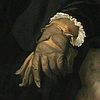Take a photo of a barcode or cover
challenging
informative
tense
medium-paced
I struggled to get into this book, finding the characters alien and the language almost impenetrable, but was glad I persisted. Pasolini wanted to relate events and people as he had experienced them in his sojourn in Rome in the early 1950s and the rough language and the petty criminal activities carried out do give a shock of realism to the story which would be difficult to achieve in any other way. The narrative style reveals a deep sympathy with the characters and helps to explain the nature of the desperation and poverty which drives them to act as they do. Indeed, in addition to the obscenity for which Pasolini was unsuccessfully prosecuted on the appearance of this book, his sympathy with the underclass and mistrust of bourgeois values , as represented by the evolution of Riccetto, underline the revolutionary nature of his thought at the time.
È il genere di libro che, con un certo gusto per il disagio e il degrado, si potrebbe aprire a caso e riprendere a leggere per sempre, anche grazie alla sua natura episodica e slegata. La scrittura di Pasolini è densa, in un miscuglio intricato da un lato di uno stile vivido e raffinato, dall’altro di dialetto e volgarità. Leggere Ragazzi di vita è un po’ come guardare un suo film, le voci dei personaggi e gli scenari descritti sono così nitidi che più che un romanzo sembra una cronaca di fatti realmente accaduti.
I ragazzini, a parte il Riccetto, sembrano una massa indistinta votata alla furbizia: ogni giorno è uguale al precedente e al successivo, l’unico obiettivo è trovare un modo per fare soldi, anche perché prima o poi quei soldi qualcuno te li sfilerà di tasca; le giornate sembrano infinite, si dorme dove capita, per strada o nei campi, ma c’è anche dignità e ottimismo, nei giochi e nell’ingegnarsi a campare.
I ragazzini, a parte il Riccetto, sembrano una massa indistinta votata alla furbizia: ogni giorno è uguale al precedente e al successivo, l’unico obiettivo è trovare un modo per fare soldi, anche perché prima o poi quei soldi qualcuno te li sfilerà di tasca; le giornate sembrano infinite, si dorme dove capita, per strada o nei campi, ma c’è anche dignità e ottimismo, nei giochi e nell’ingegnarsi a campare.
Il Riccetto cantava:
Quanto sei bella Roma,
quanto sei bella Roma a prima sera,
a squarciagola, completamente riconciliato con la vita, tutto pieno di bei programmi per il prossimo futuro, e palpandosi in tasca la grana: la grana, che è la fonte di ogni piacere e ogni soddisfazione in questo zozzo mondo.
It's quite a rare thing to find somebody who has a talent in one form of art being able to transfer it to another medium but when it does happen you're almost certain to find that they transfer the content or the message from one to the other. This is definitely the case with Pasolini, he early novels influencing the style and content of his movies which are then referred back to in his later books.
As another review mentions, his style is certainly reminiscent of [a:Ernest Hemingway|1455|Ernest Hemingway|http://photo.goodreads.com/authors/1175539371p2/1455.jpg] in the way he manages to access the everyday life of post-war Rome, following the coming of age of several youths on the wrong side of the law in a series of vignettes, but beyond that I have struggled to find anything to get worked up by.
I didn't particularly enjoy reading this novel and sort of wish I hadn't bothered; the historical value of his first hand experiences in this particular place at this particular time in world history is huge and very interesting but beyond that there was very little of entertainment value. As I always point out when reviewing a novel, the purpose is always to entertain, whether it is educational or important if a book is written well it should also entertain on some level.
This didn't do it for me and as such I think it will be a very long time (if at all) before I read the other Pasolini novel I picked up at the same time as this.
As another review mentions, his style is certainly reminiscent of [a:Ernest Hemingway|1455|Ernest Hemingway|http://photo.goodreads.com/authors/1175539371p2/1455.jpg] in the way he manages to access the everyday life of post-war Rome, following the coming of age of several youths on the wrong side of the law in a series of vignettes, but beyond that I have struggled to find anything to get worked up by.
I didn't particularly enjoy reading this novel and sort of wish I hadn't bothered; the historical value of his first hand experiences in this particular place at this particular time in world history is huge and very interesting but beyond that there was very little of entertainment value. As I always point out when reviewing a novel, the purpose is always to entertain, whether it is educational or important if a book is written well it should also entertain on some level.
This didn't do it for me and as such I think it will be a very long time (if at all) before I read the other Pasolini novel I picked up at the same time as this.
— colonne di operai, di sfaccendati, di madri di famiglia scese dal tram al Portonaccio, proprio sotto i muraglioni del Verano e che trascinavano le borse piene di carciofoli e cotiche, verso le casupole della via Tiburtina, o verso qualche —
Per quanto io mi sforzi, riesco a cogliere il genio, ma non l'apprezzo. Preferisco Pasolini di gran lunga nella sua veste di critico o saggista, ma come scrittore di romanzi, che raccontano tutto il brutto della vita di borgata (un po' come Siti) mi piace molto molto meno.
Un pugno nello stomaco. Crudo e assolutamente reale.
challenging
dark
informative
reflective
sad
medium-paced
Plot or Character Driven:
A mix
Strong character development:
No
Loveable characters:
Complicated
Diverse cast of characters:
Yes
Flaws of characters a main focus:
No






